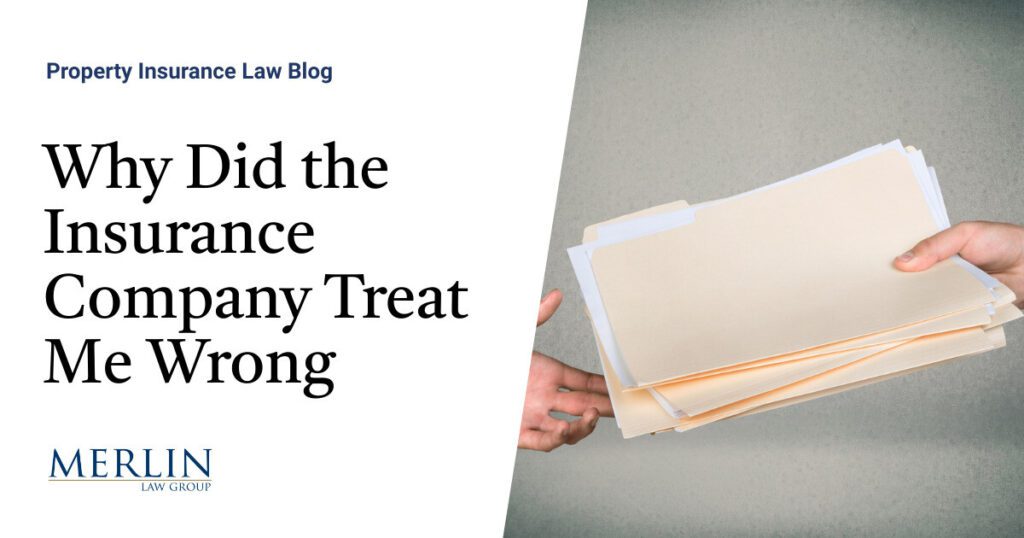Why Did the Insurance Company Treat Me Wrong? Discovery Into Internal Files of the Insurer

Policyholders sometimes claim that the insurance company denied or underpaid their claim based upon monetary incentives to do so. Most of the time, those claims of monetary incentives are without evidence and are often based on speculation and projection. A recent first-party uninsured motorist bad faith lawsuit based in Washington, Box Robison v. Allstate Fire and Casualty Insurance Company, 1 made significant rulings concerning the scope of discovery into personnel files of Allstate employees who handled Box-Robison’s underinsured motorist claim. The rulings differentiated between allowable and non-allowable requests based on their relevance to the case and the privacy concerns involved.
Discovery Allowed:
Performance Evaluations: The court allowed the discovery of performance evaluations for the employees involved in handling Box-Robison’s claim. These documents could potentially indicate how well these employees performed their duties and whether their performance could have impacted the handling of the claim.
Promotions/Demotions: Information regarding any promotions or demotions received by these employees was considered relevant as it could reflect on their competency and reliability in handling insurance claims.
Educational Courses Attended: The court permitted the discovery of records related to any company-sponsored educational courses these employees might have attended. This could provide insights into their qualifications and training, which are relevant to their roles in claim processing.
Job Descriptions: Understanding the specific responsibilities and roles of the employees through their job descriptions was seen as directly relevant to assessing how they managed the claim.
Complaint Letters: Any letters of complaint regarding these employees were deemed discoverable. These could indicate previous issues or misconduct related to the handling of insurance claims, which might be pertinent to the case.
What is not allowed?
Full Personnel Files: The court ruled against the discovery of the entire personnel files, such as retirement benefits and healthcare or insurance status. These aspects were considered irrelevant to the claims or defenses in the case.
Irrelevant Personal Information: Any information that did not have a clear connection to the handling of the insurance claim or the performance and conduct of the employees in their professional capacities was not allowed. This includes personal details that do not impact their professional duties.
In Insurance Companies Always Fight Requests for Production of Internal Claims Management Objectives and Goals, I made the following observation:
Many policyholders think that insurance company adjusters get an individual bonus on each claim for paying less than a certain amount. They distrust the insurance company adjuster and often creatively claim more, fearing that the property insurance adjuster will wrongfully reduce the eventual settlement. The truth is that collectively, many insurance companies pay bonus incentives to claims personnel when they hit certain objective claims goals which also involve paying less on a claim.
Accordingly, when policyholder attorneys ask for this internal information, insurance company attorneys fight and object. They do this virtually in every case because it is harmful evidence. Most would suggest that the decisions and actions of the claims personnel who have such incentives indicate a strong bias and most would agree that it is unethical. Yet, this legal maneuvering by insurance company lawyers is routine.
…
Watch out for those objecting insurance company lawyers. They will object, withhold, and argue anything to keep the truth from seeing the light of day.
The bottom line I preach to attorneys at Merlin Law Group is to be proactive in finding any incentive where the goals of full and prompt payment of claims benefits are not found in the personnel files and company claims goals of the insurer. An insurer is either trying to get the full amount paid or not—what are the goals and performance initiatives aligned to make that happen?
Thought For The Day
Always treat your employees exactly as you want them to treat your best customers.
—Stephen Covey
1 Box Robinson v. Allstate fire & Cas. Ins. Co., No. 23-cv-216, 2024 WL 1343107 (W.D. Wash. Mar. 29, 2024).



